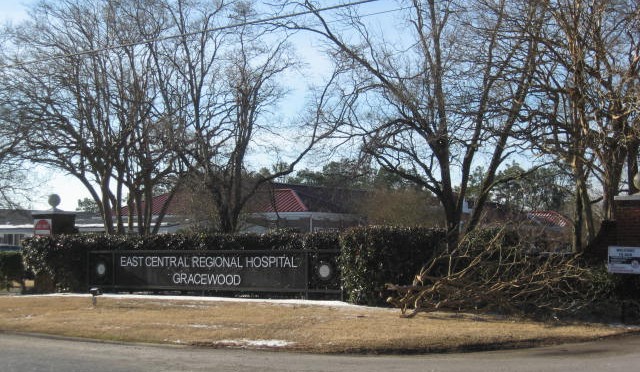Photo by: Harold “Skip” Earnest
On Tuesday, Feb. 11, an ice storm hit Augusta, Georgia, disrupting businesses and leaving hundreds of thousands people without electricity. Before it began, staff at East Central Regional Hospital (ECRH) began preparations for the storm: Vehicles were ready to transport staff to work. Overnight cots were prepared for staff at both the Augusta and Gracewood campuses for those who would be required to stay over. All clients living in houses or cottages were moved to the main buildings where generators would be accessible during power outages. Dietary services and the pharmacy were stocked for three days, with the kitchen prepared to feed staff who remained on campus. Expectations for staff were clearly communicated. A command center was set up for centralized communication and coordination. Contact was made with neighboring partners at Serenity Behavioral Health Systems and the Community Integration Home to offer shelter and assistance if they should require it.
Andrea Brooks-Tucker, CNE, spent the night before at the hospital. She knew that maintaining adequate staffing levels would be critical over the next two days. Other members of the leadership team came in very early Tuesday morning, beating the freezing rain and sleet that began accumulating as early as 8:00 a.m. They strategically split themselves between the two campuses, knowing wherever they were they would probably stay for the next 24 hrs.
At 10:30 a.m., both of the hospital’s campuses lost power. Generators came on as planned. An hour later, power was restored at the Augusta campus, despite weather conditions continuing to deteriorate. The Gracewood campus remained without power. Communication systems, including phone and email, went down. Staff exchanged cell phone numbers, making sure that at least one cell phone was available in each client area in case a 911 call had to be placed. Handheld radios allowed continued contact between buildings.

Photo by: Harold “Skip” Earnest
Freezing rain and sleet continued to fall and accumulate on trees, but roads were mainly slushy at this point. The lack of a working phone system had become a major handicap. Employees calling in could not get through unless they had cell phone numbers to reach their unit or supervisor. Transportation services were operating off a single cell phone, and many calls went to voicemail. While second shift employees began to trickle in, some first shift employees were instructed to stay.
The temperature began dropping in the living areas of Gracewood. Even though the campus is heated by steam, the generators did not supply power to the air handlers that circulate warmth. Mickie Collins, the hospital’s COO, remained in contact with account representatives at Georgia Power, communicating the urgency of the situation.
The Redbud unit at Gracewood houses approximately 100 clients, half of the population at the campus. It is shaped like a wagon wheel, and the “spokes” were beginning to feel the effects of the power failure. The center, called the Rotunda, is a large empty space used for activities. Several weeks prior, a steam leak was suspected under the floor of the Rotunda, as the area was unusually warm. A repair had been scheduled but had not occurred. This defect turned out to be a blessing, as the Rotunda remained warm as the rest of the building cooled. Staff moved clients into the Rotunda, closing off the cooling hallways to preserve the warmth. People across the hospital system were experiencing similar conditions. However, some of the individuals served at Gracewood are medically fragile and prone to hypothermia. Keeping them warm was critical as failure to do so could be life-threatening.
Several options were being explored to restore power. Georgia Power had identified a large fallen tree on the feeder line and would not be able to remove it quickly. Mr. Collins, remembering a transformer outage that had occurred months previously, suggested an alternate feed. Georgia Power began to investigate this option. At the same time, Nan Lewis, the regional hospital administrator (RHA), contacted the state office of the Georgia Department of Behavioral Health and Developmental Disabilities (DBHDD) to explore whether the Georgia National Guard, which had been available to transport staff, could be deployed to clear the tree. DBHDD Commissioner Frank Berry was already working closely with Governor Deal, and restoring power to Gracewood had become a top priority for the state due to the fragility of the campus’ population. An option relocate individuals to the Augusta Campus was considered as a last resort.

Photo by: Harold “Skip” Earnest
As night fell and temperatures continued to drop, walking outside from building to building had become dangerous, and many roads were impassable. It was clear that the second shift would not be able to leave as staff scheduled to work the third shift would be unable to traverse the roads. Knowing that conditions would not improve by morning, the possibility of needing to cover three continuous shifts with staff already at the hospital was becoming a reality. As staff had no way to leave or come in, coverage would have to be maintained by allowing relief and rotations. The day shift employees who had already worked a double shift were the first to get a break.
Power was successfully restored to Gracewood at 8:00 p.m. via the alternate feed. The building temperatures rose quickly as the stored steam heat was readily circulated. Celebration was short-lived, and a little after midnight, power was lost again on both campuses. Georgia Power informed staff that everything southwest of Lumpkin Road was without power and would not be restored quickly. The buildings had warmed up considerably in those few hours, and Gracewood staff kept clients in the Rotunda. Communications went down with the power, forcing staff again to rely on hand radios and cell phones.
The power failure triggered the fire alarm system in the Redbud unit, and the alarm continued to sound hours into the night, despite repeated efforts by the maintenance staff to reset it. The staff tried to reassure and comfort the individuals crowded into the Rotunda and hallway, but the noise along and darkness were disturbing to the clients.
Cheryl Bragg, Director of Dietary Services, had spent the night along with Nan Lewis and Mickie Collins in the Administration Building on cots set up in offices. No one slept much, however, as sounds of cracking limbs, falling trees, and sheets of ice sliding off the tin roofs crashing to the ground were the backdrop for continued updates coming in by cell phone. Ms. Bragg rose before 5:00 a.m. to prepare breakfast for the 200 individuals and staff at Gracewood. Her support staff had not yet arrived, so unit staff convened in the kitchen to help. Aaron Newberry, a dietician and one of the unit staff who had spent the night, began locating appropriate food to prepare. The kitchen generators that provided power for the freezers, refrigerators, lighting, and some ovens, could not support the large commercial mixers and grinders necessary for food preparation for those individuals on special puréed, chopped, or softened diets. Not knowing how long the power would be out, multiple back-up plans began to take shape. Both the kitchen and the units were searched to locate retail blenders. One of the staff began calling grocery stores to find baby food. No stores nearby answered. The ice storm had shut down Augusta in these early morning hours.

Photo by: Harold “Skip” Earnest
Ms. Lewis called the DBHDD state office to inform staff of the second loss of power occurring shortly after midnight, and the bleak picture Georgia Power had painted for swift restoration. Ms. Lewis was advised to call the Georgia Emergency Management Agency (GEMA) for assistance. A local chapter contacted Golden Harvest, a local food bank, to locate and deliver baby food. Meanwhile, Central State Hospital in Milledgeville was being contacted to explore their ability to send prepared food to Augusta. The search for an open store was successful, however, and a van was dispatched to Wrightsboro Road.
On the Augusta campus, the dietary staff had been supplemented by psychologists, a psychiatrist, and nurses, who organized an assembly line to prepare 200 chicken salad sandwiches for individuals and staff. A demonstration of team work at its best!
Focus shifted back to restoring heat to Gracewood. Communications continued with Georgia Power. Sister hospitals in Savannah and Columbus offered assistance by transporting generators to Augusta. The possibility of their also providing space heaters was considered, but associated safety risks were too high and this option was ruled out. Mr. Collins made a decision to remove the switch that toggled the facility between Georgia Power and generator power. This took the campus totally off-line with Georgia power but provided generator power to the air handlers to reheat the buildings. The Army Corps of Engineers, sent by the Federal Emergency Management Agency (FEMA), arrived to review the energy situation. After reviewing the physical plant and the plan the Mr. Collins already had in place, they determined they could offer no better alternative.
The van returning from the grocery store on Wrightsboro Road reported that road conditions were good and that transportation services could be reinitiated to pick up employees still reluctant to drive into work. The vehicles that had been used for transport the previous day needed refueling, but most gas stations were closed, and those that were open were only taking cash. A working ATM was located, and after getting in line, the RHA’s personal debit card was used to provide drivers with money to refuel.
On Thursday, temperatures rose quickly, and the ice began to melt. Full power was restored in the early afternoon, and Mr. Collins reversed the switch to put the facility back online. Employees who had weathered the storm were relieved by incoming shifts. Commissioner Berry visited the ECRH campus to show his support and appreciation to those who navigated the situation and prevented what could have been life-threatening crisis situations.
ECRH had its share of both triumphs and lessons learned. The team came together to make it through those cold, dark hours that felt like days. After the storm had passed, the same team convened to examine what could have been done differently or in advance to better prepare the facilities and staff in the future. Though the ice storm presented many challenges and inconveniences, the teamwork displayed by Governor Deal, Commissioner Berry, GEMA, FEMA, Georgia Power, and all staff at ECRH ensured that clients and staff remained safe.
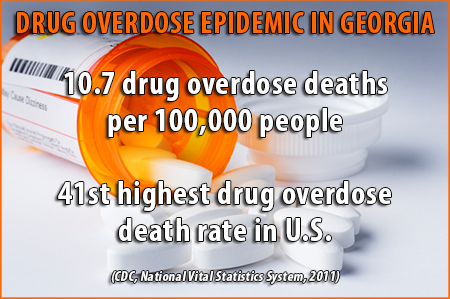
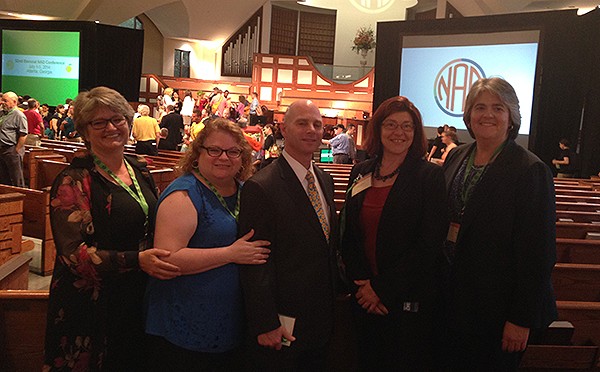
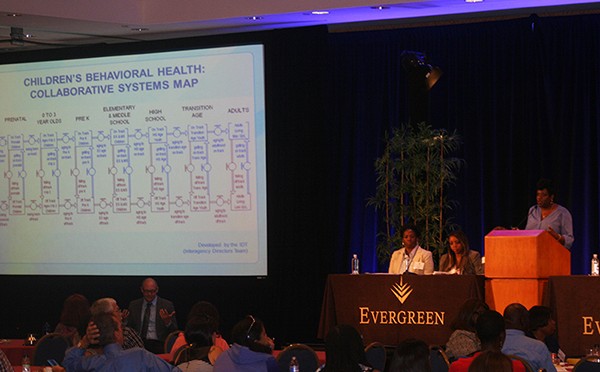

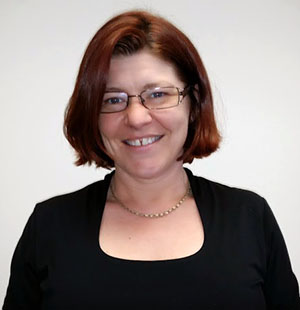 This week, DBHDD welcomes Candice M. Tate, Ph.D., as director of the Office of Deaf Services. Dr. Tate is a deaf psychologist fluent in American Sign Language (ASL). She brings over 15 years of experience in therapeutic and assessment services to both deaf and hearing populations. Her work on
This week, DBHDD welcomes Candice M. Tate, Ph.D., as director of the Office of Deaf Services. Dr. Tate is a deaf psychologist fluent in American Sign Language (ASL). She brings over 15 years of experience in therapeutic and assessment services to both deaf and hearing populations. Her work on 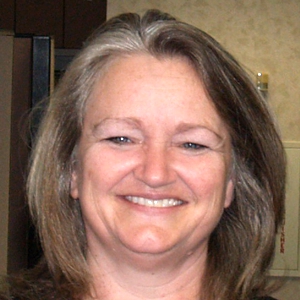 DBHDD’s
DBHDD’s 